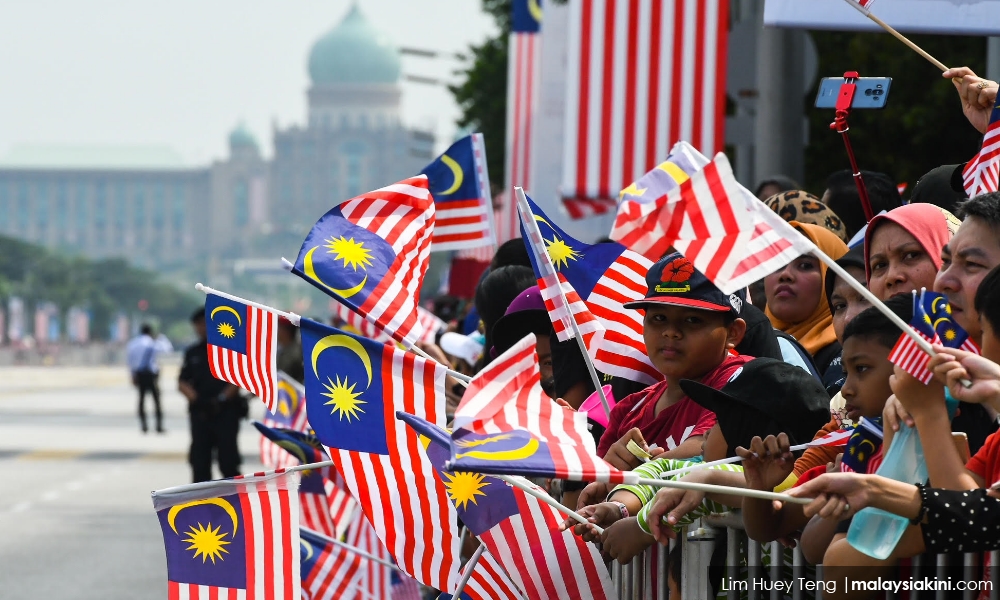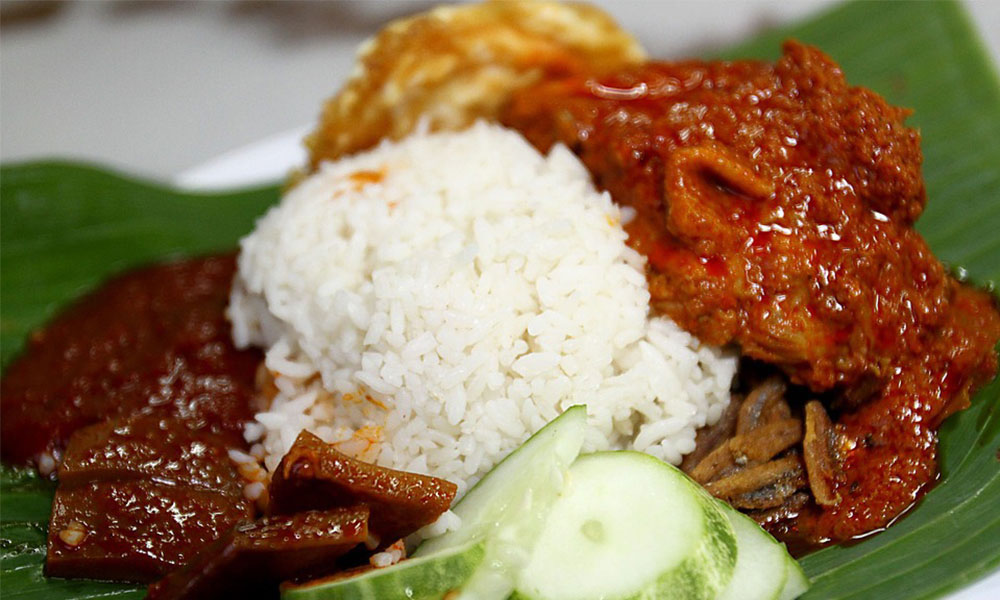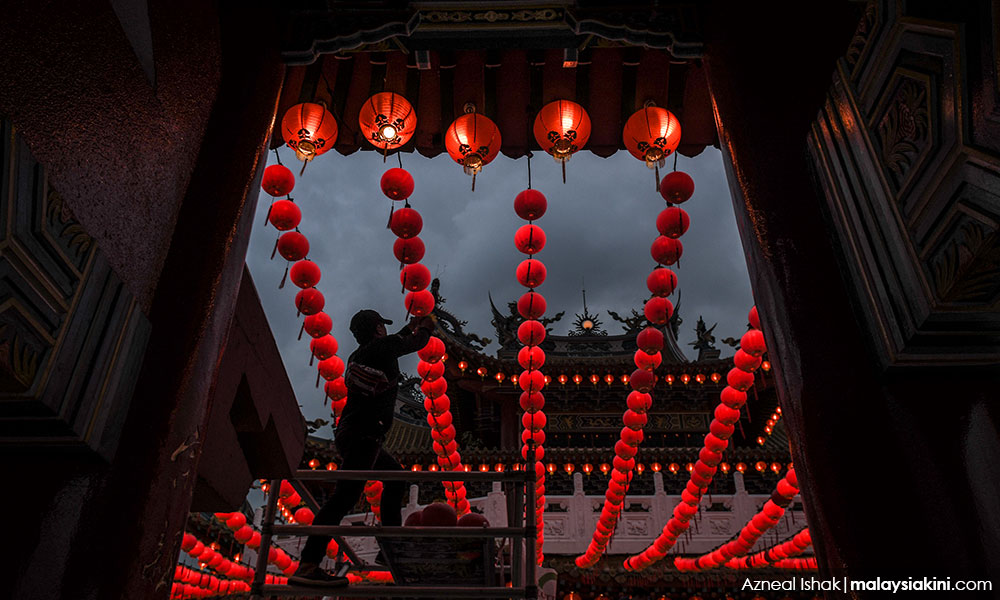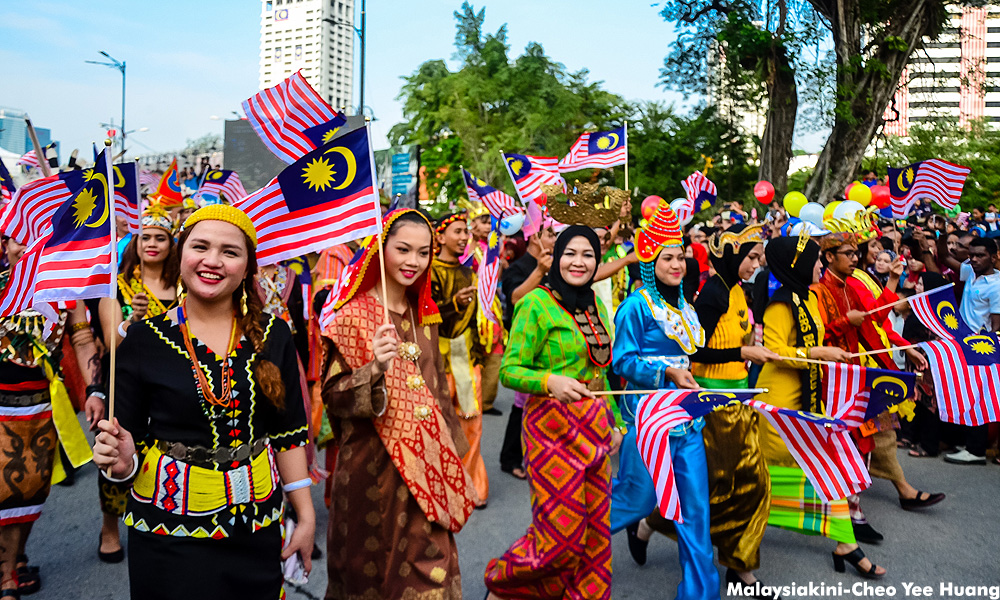
A few years ago, my mom got into an argument with a nasi lemak seller in our neighbourhood market. Mom was getting her usual stock of tau sar peah (green pea cakes) from a Chinese aunty when the makcik at a nearby nasi lemak stall called her. Curious, after completing the purchase, mom walked to the makcik’s stall.
Pointing at the rolls of tau sar peah inside mom’s basket, the makcik asked if they were halal. My mom then explained that they were made with vegetable oil and green peas and she trusts that the Chinese aunty who owns the stall would not sell anything non-halal to a Muslim.
The makcik then responded by advising mom that it wasn’t appropriate for a Muslim to purchase food from a Chinese especially without halal certification. According to her, it wasn’t wise to simply trust people.
Since the makcik was so particular about halal certification, mom asked if her nasi lemak was halal. This took the makcik by surprise.
“Tentulah halal! Makcik yang buat sendiri! (Of course it’s halal! I made them myself!)” she cried.
“Macam mana dengan nasi, telur dan ikan bilis? Sendiri punya atau beli dari orang lain? (How about the rice, eggs and anchovies? Did you produce them or did you purchase them from elsewhere?)” mom replied sarcastically.
Mom then requested for the halal certification of the nasi lemak to prove her claim that they were halal – which obviously the makcik failed to comply.
“Kita sama-sama orang Islam mestilah percaya antara satu sama lain (We are both Muslims, we should trust each other)” the makcik responded.

“Kita sama-sama manusia, kenapa tak boleh percaya antara satu sama lain? (Well we are all human beings, why can’t we just trust one aother?)” mom asked before leaving.
My family has been living in Perkampungan Machang Bubok in Bukit Mertajam, a Chinese majority neighbourhood, for the past forty years. Being a minority in this little village has taught us values that we could not have learnt elsewhere in this Muslim majority country.
Once, during the Chinese New year week, when I was a little girl, a Chinese uncle who owned the grocery store in our village mistakenly gave me an orange taken from his altar table as a gift. A few minutes later, he caught me as I was walking home and while apologising profusely, replaced the orange with a banana taken from his store. Funny thing is, I would never have known that the orange was an offering on the altar had he not told me.
As I grew older, the community living in our little village flourished as well. Slowly, a few Malay families moved in and like us, made it their home.
With Muslims riding their motorcycles to the neighbourhood mosque during prayer time, things began to change. I stopped seeing pigs being roasted by the street every time the Taoist temple in our village held events. During religious ceremonies, I saw stacks of rice sacks arranged around roasted pork in such a way that it wasn’t easily visible to the Muslims moving around.

The Chinese in our village are very sensitive to Muslims although they need not be. In a country like Malaysia where the majority is pampered with privileges and the minorities expected to tolerate or else asked to leave, it made us appreciate and trust our Chinese neighbours.
Recently, a relative came to invite us to his daughter’s wedding. While sipping his coffee, he was attracted to a cabinet displayed in our living room.
“That’s a very nice cabinet. Where did you get it from?” he asked.
“I specially ordered it to fit the space,” my dad replied.
“Who did you order it from?” he asked, again.
“A rehabilitation centre in town where they train young people to learn carpentry skills.”
“Malays?”
“Mostly Malays, yes.”
With a big smile, my relative then said, “Good, good. We must always support our own people. I also always buy goods from Muslims. Why give our money to the non-Muslims when we can help our own kind?”
“It doesn’t matter to me as long as the quality is good and the price is cheap,” said dad in a true Penangite spirit.
“Not for me. Even for the wedding, the bridal wear, photography, videography, hall decorations, catering and the invitation cards are all from our people. I made sure of that.”
My dad forced a smile listening to our relative.

Later that day, as I condemned our relative for his racist behaviour, my dad said something profound.
“People are products of their upbringing and experience. Those who are exposed to a diversified community are more receptive of people from different races, religions and backgrounds. And those who spend most of their time within a community of their own are more receptive of their own kind. That doesn’t make them bad people, they just don’t know any better.”
I rolled my eyes at dad and said, “Seriously? How can these people live in Malaysia and not be exposed to the different layers of community here?”
“Being exposed to people of different races and religions isn’t the same as living together within the layers of the community. Have you heard of the phrase ‘Those who eat together, stay together?’ Likewise, those who live together, stay together,” explained dad.
I suppose dad is right. The nasi lemak makcik and my relative may not have the intention to spew hatred or to discriminate, they just may not know any better. And being ignorant doesn’t really make a person racist.
FA ABDUL is a passionate storyteller, a media trainer, an aspiring playwright, a director, a struggling producer, a photographer, an expert Facebooker, a lazy blogger, a part-time queen and a full-time vainpot. - Mkini



No comments:
Post a Comment
Note: Only a member of this blog may post a comment.